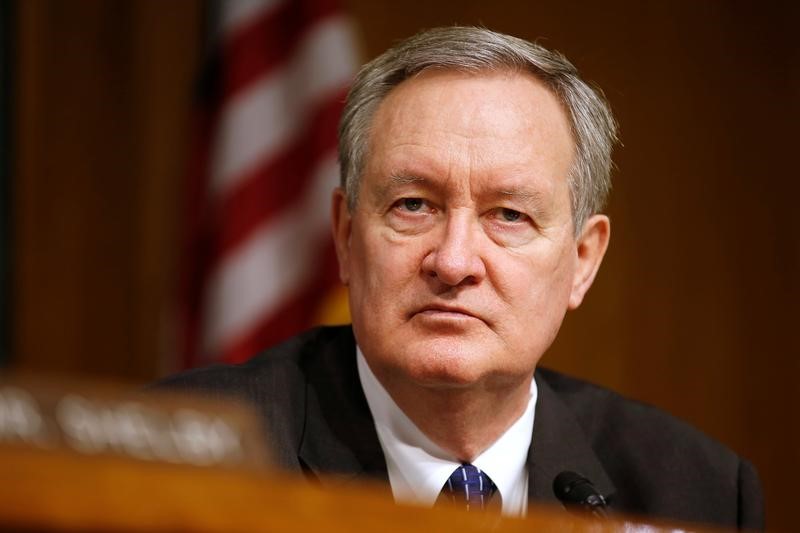By Sarah N. Lynch
WASHINGTON (Reuters) - A U.S. Senate panel on Thursday approved with bipartisan support a raft of bills aimed at spurring capital formation, marking its first step this year toward modernizing market rules that critics have said are outdated and get in the way of business expansion and investment.
The move is part of the ongoing effort by the Congress to streamline the U.S. financial sector and is seen as largely separate from U.S. President Donald Trump's push to repeal or replace regulations which he contends could impede economic growth.
The Senate Banking Committee, led by Idaho Republican Chairman Mike Crapo, is now poised to send to the Senate floor five bills that garnered support from both Democrats and Republicans, with Democratic Senators Elizabeth Warren and Jack Reed the only dissenters.
Sherrod Brown, the panel's ranking Democrat, praised the bipartisan work that went into the bills, and said he is optimistic "there are additional common sense measures" that can tackled next.
The bills propose a variety of changes to the Securities and Exchange Commission's regulations, such as raising the dollar amount of stock options that private companies can award employees in a given year from $5 million to $10 million, and easing restrictions to allow brokers to publish research on the global $3.7 trillion exchange-traded fund market.
They would also boost the number of people that can invest in venture capital funds without triggering certain federal rules, subject mutual funds in Puerto Rico to the same rules that funds already face on the U.S. mainland and credit stock exchanges for any fees and assessments they may have overpaid to the SEC in the last decade.
Pennsylvania Republican Senator Pat Toomey, who co-sponsored the bill involving private company stock options, said on Thursday he is hopeful the measure "will be considered by the full Senate soon."
Thursday's hearing was the first time since the November election that the Republican-led Senate Banking Committee has convened to consider financial legislation.
The U.S. House of Representatives Financial Services Committee, meanwhile, is also gearing up to boost capital-raising via a more comprehensive rewrite of the 2010 Dodd-Frank financial reform legislation.
Trump's choice to lead the SEC, Wall Street deal making attorney Jay Clayton, has previously privately discussed ideas with Trump on how to help spur capital formation.

All of the bills approved by the panel on Thursday have been considered in prior congressional years, but never passed into law. Some of the bills also have companions in the House introduced this year.